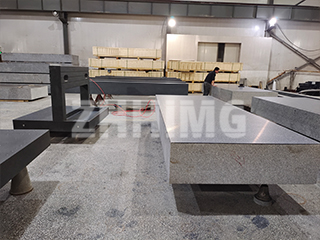Surface roughness is one of the key parameters in modern manufacturing, directly affecting product performance, assembly precision, and service life. Surface roughness testers, especially contact-type instruments, are widely used across various industries to ensure consistent quality and reliable functionality of components.
1. Metalworking and Mechanical Manufacturing
Surface roughness testers were originally developed for the inspection of machined metal parts. In this field, they remain indispensable today. Contact-type testers, equipped with stylus probes, are particularly suitable for detecting the surface roughness of hard metallic materials.
Typical applications include:
Automotive parts manufacturing – gears, engine components, and transmission parts.
Precision machinery – shafts, bearings, and structural components.
In these sectors, where surface quality directly affects product efficiency and durability, roughness inspection is an essential quality control step.
2. Non-Metal Processing Industries
With the advancement of materials technology, new engineering materials such as ceramics, plastics, and polyethylene are increasingly replacing traditional metals in certain applications. For example:
Ceramic bearings used in high-speed and high-temperature environments.
Polyethylene valves and pumps applied in chemical and medical industries.
These materials, although non-metallic, still require precise surface quality inspection to guarantee their performance. Surface roughness testers provide reliable measurement for these applications, ensuring that advanced materials meet strict production standards.
3. Electronics, Energy, and Emerging Industries
As the technology and functionality of roughness testers continue to evolve, their application fields have expanded beyond conventional manufacturing. Today, they play a crucial role in:
Electronics and semiconductor industry – measuring components such as ICs, wafers, and connectors.
Telecommunications – ensuring the precision of couplings and connectors in switches and transmission devices.
Energy sector – assessing surface quality of turbine parts, insulators, and other high-precision components.
Interestingly, roughness measurement is also finding its way into everyday applications, from stationery and kitchenware to even dental surface inspections, proving the versatility of this technology.
Surface roughness testers are no longer limited to traditional metal machining; their applications now extend to a wide range of industries, from advanced materials and electronics to daily life. With the growing demand for precision and reliability, the role of roughness measurement in quality control will continue to expand, helping manufacturers worldwide achieve higher standards of performance and consistency.
Post time: Sep-17-2025

